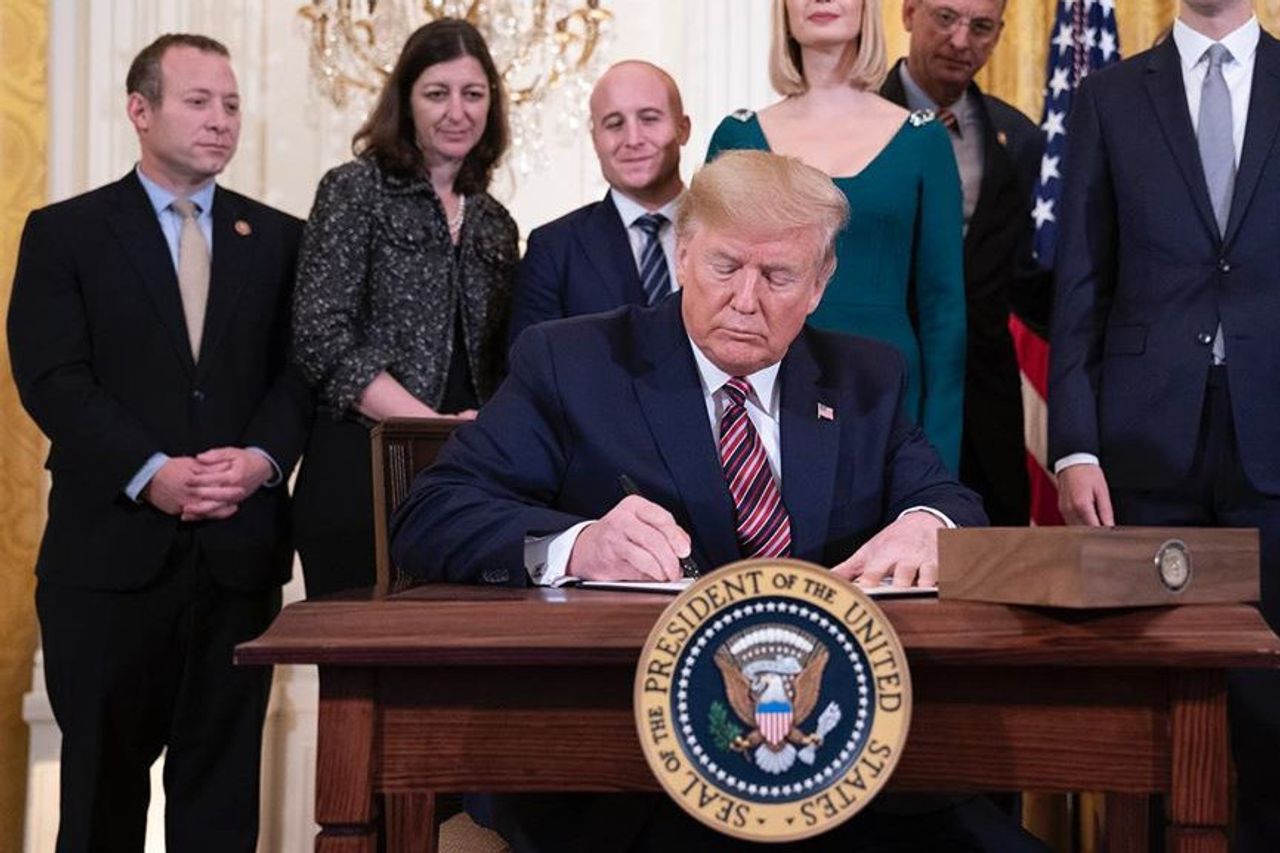Impeachment Of Other Presidents In The World Before Trump

JAKARTA - On Wednesday, December 18, the President of the United States (US) Donald Trump was impeached by the DPR. As many as 230 members of the House of Representatives agreed to expel Trump from the White House.
The impeachment was carried out because Trump was deemed proven to have abused his position to pressure Ukraine. However, Trump can still participate in the US elections which will be held in 2020.
In fact, Trump is not the first president to be impeached by the DPR. Several countries in the world have committed impeachment against their leaders for various reasons.
1. South Korean President Park Geun-hye
Park Geun-hye is the first female president in South Korea (South Korea). In 2012, Geun-hye managed to beat the opposition, namely Moon Jae-in, who is now the president.
Park Geun-hye's impeachment began with Park Geun-hye's friendship with Choi Soon-sil. Park Geun-hye, who was the son of the late South Korean President Park Chung-hee, became friends with Choi Soon-sil who was the son of Park Geun-hye's spiritual adviser.
This friendship was also said to be part of Park Geun-hye's debt to his late spiritual adviser.
The two people were so close, Park Geun-hye leaked state secrets to Choi Soon-sil. Even a TV station in South Korea, JTBC, managed to reveal an information on Choi Soon-sil's tablet containing Park Geun-hye's speeches which Soon-sil edited on her wish.

Choi Soon-sil was also involved in the president's policies, so the schedule for the presidential press conference was all controlled by Choi Soon-sil. Not only that, Choi Soon-sil used her closeness to the number one person in South Korea to blackmail businessmen into cooperating or smoothing out their business affairs.
He also blackmailed the giant smartphone company, Samsung, into disbursing funds to two of his non-profit foundations. On October 31, 2016, Choi Soon-sil was finally detained by South Korean law enforcement officers on charges of using state funds for personal needs and acts of extortion.
South Koreans who are furious at Park Geun-hye's attitude of smoothing out Choi Soo-sil's affairs forced him to resign from his position as president. Through a voting mechanism, Park Geun-hye was impeached and officially overthrown in March 2017.
Park Geun-hye became South Korea's first democratically elected president to be forced to resign from office. After losing his legal immunity, Par Geun-hye was charged with bribery, abusing state power and leaking state secrets.
2. President of the Philippines Joseph Ejercito Estrada
The tenure of Philippine President Joseph Estrada was not very long. In 1998 he succeeded in becoming president by voting. However, in October 2000 a corruption scandal involving Estrada broke out. Estrada is reported to have accepted multi-million dollar bribes.
In November 2000, the Philippine Senate held an impeachment trial, but the trial was postponed after several senators presented no evidence of Estrada's corruption.
On January 20, 2001, Estrada was finally overthrown amid mass protests. Its vice president, Gloria Macapagal Arroyo, rose to the presidency.
Estrada was later brought to court on charges of looting (massive corruption) and accused of having earned more than $ 80 million through bribes and fraudulent transactions. Estrada said the allegations were politically motivated.
In September 2007 Estrada was found guilty and sentenced to a maximum sentence of 40 years in prison. However, in November, Estrada received an amnesty from President Arroyo.
3. Venezuelan President Carlos Andrés Pérez
After studying law in Caracas, Carlos Andrés Pérez decided not to become a lawyer and went straight to politics. Perez saw her as the path to wealth, fame, and being surrounded by glamorous women.
Quoted from the Independent, Friday, December 20, 2019, Perez is famous for his bushy beard, clothes that are too tight, and his lifestyle that is surrounded by women.
Even so, Perez still has noble goals; making lesser known countries a player in the world. Perez first led Venezuela in 1974 and succeeded in making the oil industry in Venezuela soar to earn the nickname "Saudi Venezuela".
In 1991, George HW Bush even described Pérez as "one of the great leaders of democracy in the hemisphere".
However, this success does not guarantee that he will be successful again in the second period. In his second term in office, which began in 1989, Perez faced trials. His austerity measures led to widespread rioting that claimed hundreds of casualties.
In 1992, an army lieutenant colonel staged a military coup but was unsuccessful. The riots that continued throughout the year made the Congress intervene. On March 20, 1993, Venezuelan Attorney General Ramón Escovar Salom charged Venezuelan President Carlos Andrés Pérez with embezzlement of 250 million bolivars.
This problem was initially exposed in November 1992 by journalist José Vicente Rangel. Pérez and his supporters claim the money was used for the electoral process in Nicaragua. However, after an investigation, it was revealed that the money was used to support and hire bodyguards for Nicaraguan President Violeta Chamorro.
On May 21, 1993, the Supreme Court considered the allegations valid and the following day, the Senate decided to impeach Pérez. Pérez initially refused to resign, but after 90 days, the National Congress succeeded in overthrowing Pérez. Apart from being impeached, Perez was also placed under house arrest for two years.
